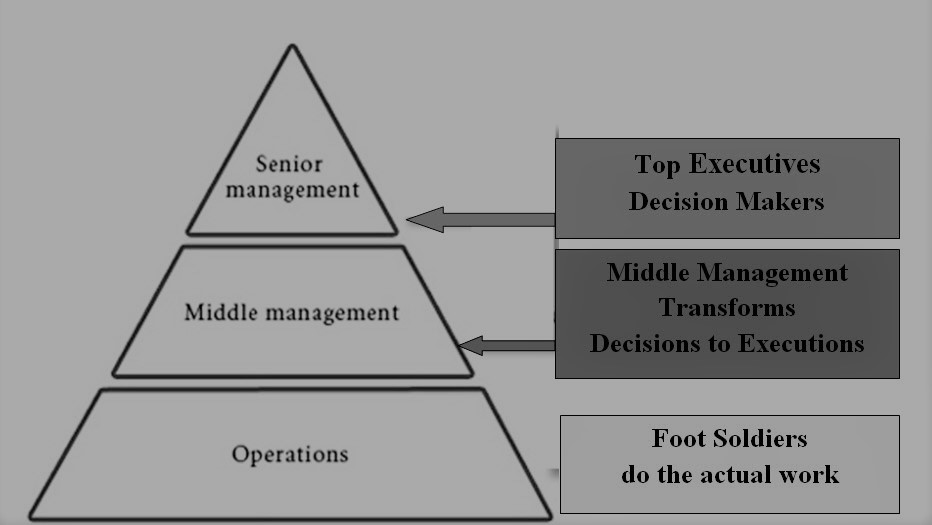
Stories Talk | Presentation Skills and Effective Storytelling
Stories Talk | Presentation Skills and Effective Storytelling
By Mia Kollia
Translated by Alexandros Theodoropoulos
#management #middlemanagers #leaders #corporations #business #success
In recent years, there has been a trend in several fields of work related to the devaluation of executives moving to the middle levels of companies and organisations. However, a closer look into things has shown that having competent and well-trained middle managers is actually of great importance for the sake of a company or organisation.
The people who are called upon to perform managerial duties usually function as a bridge that connects the different levels of a company, keeping it together. They are the connecting links that manage to bridge the gap created between the different levels of power, regarding the communication and the general function of a company.
Therefore, what are the skills of a middle manager and how are they used? Let's look at some of the roles we typically take on from such a position:
The Intercessor
As managerial intercessors/mediators, we are called upon to comprehend the needs and requirements of leadership on the one hand and the workforce on the other. We need to invest time in analysing the arguments of each side and delve into the needs that should be met in order for the company to function smoothly.
This position may seem easy to some, but it requires great skills, so that we can understand all the details and act as interpreters of all trends. At the same time, it is essential that we have the courage to stand up to our leaders and superiors in order to defend positions that we believe are of great value to be heard.
The Conduit
As middle managers belonging to the middle level of an organisation, we are able to function as communication conduits/channels between all levels of leadership and staff. It is therefore important to know the working conditions of the workforce in depth, to involve our subordinates in discussions and to be open-minded. These conciliations can result in innovation and new ideas - proposals to the leadership, for the better functioning of the organisation and the efficiency of the staff.
At this point, it’s clearly important to have the courage and skills required to be able to successfully communicate with the leadership of a company and to convey our proposals in the ideal way. This dual view of the manager's position, which goes beyond the formal power structure, is a necessary component for finding solutions and, therefore, for the proper operation of a business.

The Balancer
Given the two previous methods of approaching the work of a middle manager, it’s natural to reach the most difficult and complex operation of this role. And this is none other than the critical evaluation and balancing of the positions of all the hierarchical layers of a company.
As managers, we are often called upon to do two completely different things at the same time. We may, for example, be required to empower staff to increase productivity while also planning a layoff program.
It is necessary to have the appropriate skills in order to be able to create compromise proposals, present them to leaders and staff, and achieve balanced results that take into account all aspects for the ultimate good.
This brief overview of middle manager roles makes it clear how important these executives are to running a successful company or organisation. All companies have the opportunity to cultivate the skills that make these managers stand out and to support their work.
A very good step we can take is to make programs to develop successful managerial skills. While many companies have leadership development programs, they rarely invest time and money in developing their mid-level executives. By undertaking the implementation of such programs, we achieve immediate deepening of the dedication of our existing managers and at the same time we invest in the continuation of creating a loyal and empowered workforce for our organisation.
Last but not least, business leaders need to acknowledge the importance of managers' work and provide them with an open field of action. Avoiding micromanagement, respecting the voices represented by middle-class executives/managers and supporting them in risk-taking decisions are very important actions we can take to help each of our executives peak their performance for the best of our company.